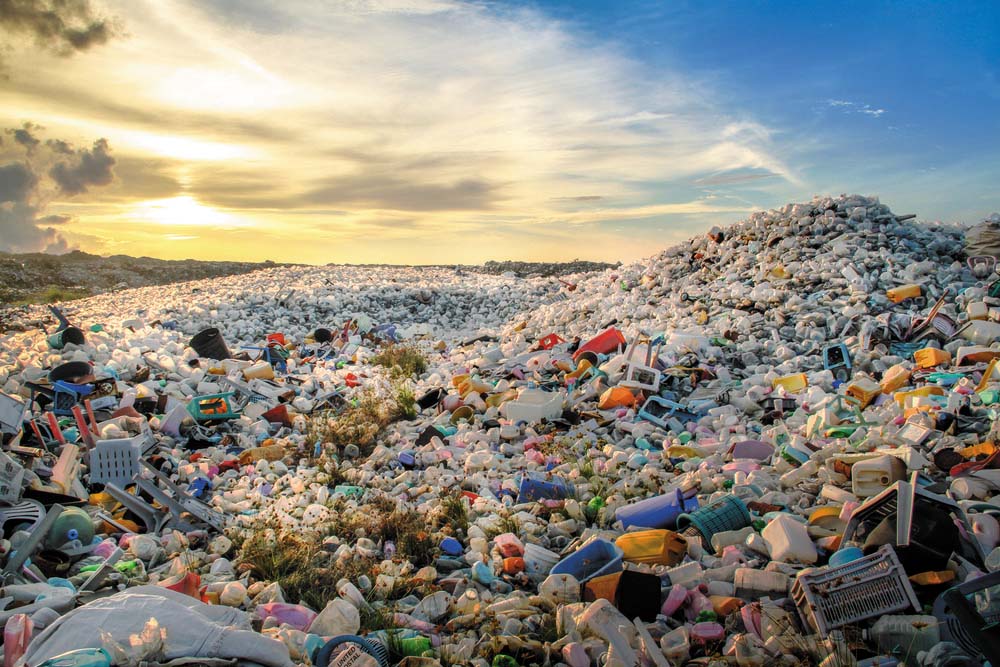11 Dec 2024

Tired Earth
By The Editorial Board

When the G7 leaders gather in Cornwall later this week, there will be many items on their agendas: Covid-19, climate change and international trade to name a few. Once again, they will be asked to make a commitment to addressing the global challenge of plastic litter.
Many of the UK’s largest supermarkets and other retailers – alongside companies that use plastics, like Nestlé, and environmental campaigners and campaign groups – have signed an open letter that supports the need for a binding worldwide treaty to tackle plastic pollution.
Considering some of the political figures who will be around the table, it would be a bold move. After all, they represent nations that are some of the biggest producers and users of single-use plastics. However, it would also be a significant statement of intent from global leaders who have individually pledged their commitment to tackling the planet’s environmental crises. And international consensus is required if we are truly to halt the accumulation of plastics in the environment.
The issue of plastic pollution might feel, to some, as though it has been in discussion forever, with little tangible progress. However, it is still less than 20 years since we published the first scientific study describing microplastics and some of the effects they were having. It is then less than a decade since momentum really started to gather pace, during which time the world’s research community has taken our understanding of the environmental problems to an entire new level.
Over the same period, global plastic production has almost doubled and there is no real indication it is likely to slow. From a practical perspective, plastics are inexpensive, lightweight, durable and incredibly versatile. And, as a result, they are used for everything from holding and storing food, to household appliances, transport, renewable energy and the medical sector.
Underpinned by scientific evidence and media attention, something else that has changed over that time is the level of consensus that current levels of plastic pollution are unacceptable. To accelerate progress towards a more responsible use of plastic, we now need to focus on the evidence that will help prioritise solutions.
With some items such as microbeads in cosmetics, our research revealed the true scale of the problem, and at the same time the societal benefits of using microbeads were not clear. Consequently, several countries, including the UK, have imposed legislation banning their use.
For applications where the societal benefits from using plastics are clearer, a "ban" is not an option, and the challenge comes in understanding how to prioritise among interventions – when to reduce, re-use or recycle, and where to consider alternative materials or clean up.
There has also been a great deal of innovation, including materials advertised as biodegradable or compostable. However, as our own research has shown, some items are not always the solutions they might claim to be. Such a lack of clarity around the efficacy of proposed solutions represents a major challenge if we are to truly address the issue.
In order for public goodwill around solving the plastics challenge to continue, design innovation, product life in service and end-of-life waste management need to be considered from a systems perspective supported by sound science. Only by doing so can we maximise the potential societal benefits of plastics while minimising the environmental effects.
Plastics are not the only environmental challenge facing our planet and may not be the most critical challenge for the G7.
However, they represent a very tangible problem. You can instantly see the problem, making it easier to understand the role you – as an individual, a business, a government – can play in addressing it.
Putting it another way, if we cannot tackle the plastics challenge – where the benefits of plastics use could clearly be obtained without current levels of harm – then I seriously worry about our ability to tackle the even more substantive issues around climate. Together with independent scientific evidence to underpin the direction of travel, the G7 leaders have a key role in helping ensure we move more rapidly towards a more sustainable use of plastics.
Professor Richard Thompson OBE FRS is head of the International Marine Litter Unit at the University of Plymouth.
Source : newstatesman.com
Comment